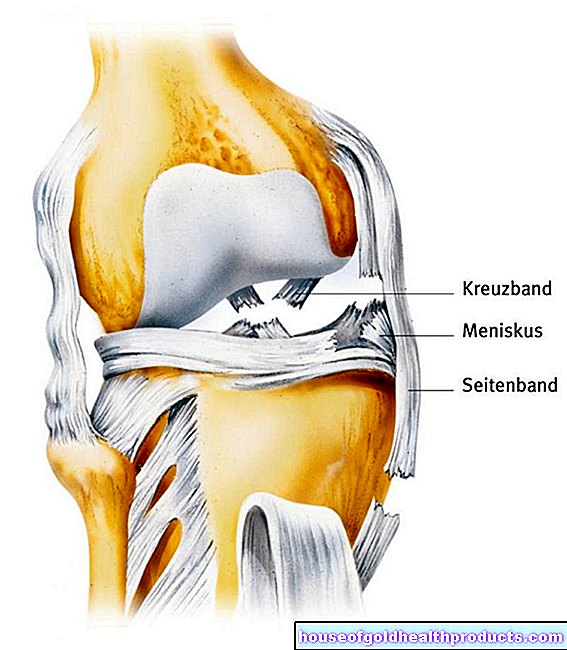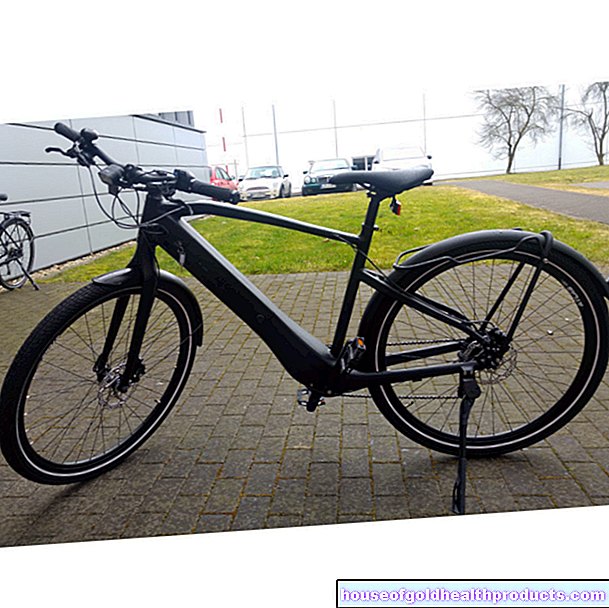Fitness: E-bikes get diabetics going
Christiane Fux studied journalism and psychology in Hamburg. The experienced medical editor has been writing magazine articles, news and factual texts on all conceivable health topics since 2001. In addition to her work for, Christiane Fux is also active in prose. Her first crime novel was published in 2012, and she also writes, designs and publishes her own crime plays.
More posts by Christiane Fux All content is checked by medical journalists.For a long time, e-bike riders were ridiculed. The powered two-wheelers make you much fitter than many think. They are an ideal introduction to a more eventful life, especially for people with poor physical fitness.
Overweight people are always advised to be physically active. This promotes weight loss and, independently of this, also alleviates the health consequences of being overweight. This is especially true for type 2 diabetics, who usually weigh too much. But those who carry excess pounds around with them naturally find exercise particularly difficult.
11 percent improved fitness
A UK study shows that an e-bike can be a good option for many. Researchers from the University of Bristol provided an e-bike to 20 participants with type 2 diabetes for five months. During this time, the test subjects' endurance improved by an average of almost 11 percent. What also speaks for the success: Only two of the participants dropped out of the study prematurely. 14 of them even got their own e-bike at the end of the investigation.
Love of movement instead of frustration
Cycling is an ideal sport for overweight people: it strengthens the cardiovascular system, burns a lot of calories depending on the pace and is also gentle on the joints. But on longer distances, in headwinds or inclines, many untrained people quickly run out of breath - regardless of their weight. In this case, e-bikes can prevent the frustration resulting from excessive physical strain from slowing down the desire to move.
"E-biking can increase motivation and help overweight as well as older people who would otherwise have difficulties with regular fitness," explains Prof. Arno Schmidt-Trucksäss from the University of Basel.
The sports medicine specialist and his team recently showed that training with an e-bike is just as beneficial for obese beginners as with normal bicycles. With an electric drive, you need significantly less power on the same routes. The additional momentum obviously encourages you to master longer and more strenuous stretches. In the end, the cyclist groups with and without e-bikes had equally built up fitness.
Even more: "Anyone who trains regularly with the e-bike benefits in the long term with regard to factors such as blood pressure, lipid metabolism and psyche," says Schmidt-Trucksäss.
E-bikes: popular, healthy - but not without danger
It's not only seniors who have long been swinging on e-bikes. Since 2009, sales have increased almost fivefold from 150,000 to 720,000 in 2017. Most of them are so-called pedelecs: They support your own pedaling with gradually adjustable electrical thrust.
However, the e-bike boom also has its downsides: inexperienced cyclists are often on the move at high speeds that they cannot control. After all, the e-bikes reach a top speed of 25 km / h. The result is numerous accidents. According to the Federal Statistical Office, 4,300 pedelec riders had an accident between January and September 2017, 55 of them fatal. That was 28 percent more than in the previous year. Especially for the fast-paced e-bike cyclists: Always put on your helmet.
Tags: diet travel medicine teeth



























.jpg)

